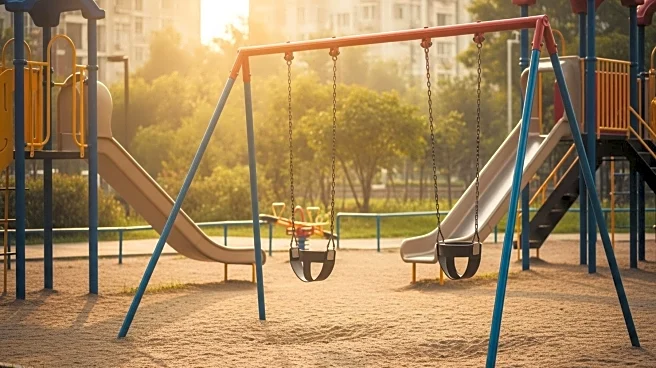What's Happening?
Recess is increasingly recognized as a vital component of student learning and well-being, yet many schools are reducing or eliminating it in favor of more academic time. According to the Centers for Disease Control and Prevention, the average recess time for elementary students has decreased significantly since the 1970s. Experts argue that recess provides essential breaks for students to rest, recharge, and develop life skills outside the classroom. Rebecca London, a researcher at the University of California, Santa Cruz, emphasizes the importance of structured recess periods to maximize benefits. A downloadable guide offers nine evidence-based strategies to improve recess experiences, advocating for more opportunities for students to play and interact outdoors.
Why It's Important?
The reduction of recess time in schools poses challenges to student development, as breaks are crucial for mental and physical health. Recess allows students to engage in physical activity, which can improve focus and academic performance. It also fosters social skills and emotional regulation, contributing to overall well-being. The proposed strategies aim to enhance the quality of recess, ensuring it serves as a productive and enjoyable part of the school day. As schools prioritize academic achievement, integrating effective recess practices can support balanced development and address concerns about student stress and burnout.
What's Next?
Schools may consider implementing the strategies outlined in the guide to improve recess quality and student outcomes. Educators and administrators will likely evaluate the impact of enhanced recess on academic performance and social skills. The conversation around recess may expand to include discussions on the broader role of physical activity in education and how schools can create environments that support holistic student development. As awareness grows, policymakers might advocate for increased recess time and resources to facilitate effective implementation.
Beyond the Headlines
The focus on recess underscores the need for a balanced approach to education that values both academic and non-academic experiences. It highlights the importance of considering the whole child in educational planning, recognizing that physical and social activities are integral to learning. The strategies proposed may influence future educational policies, encouraging schools to prioritize student well-being alongside academic achievement. Additionally, the emphasis on recess reflects broader societal concerns about the impact of sedentary lifestyles and the importance of promoting physical activity from a young age.










